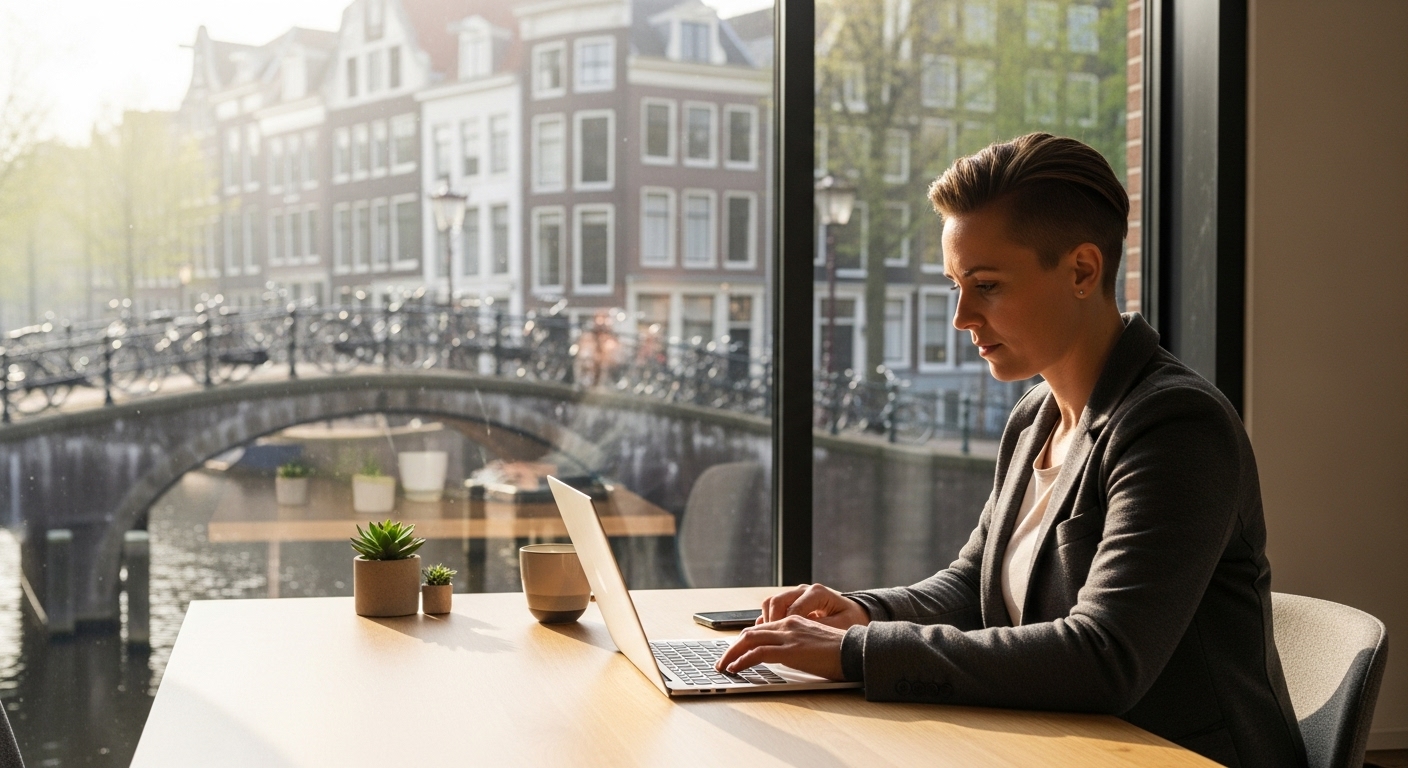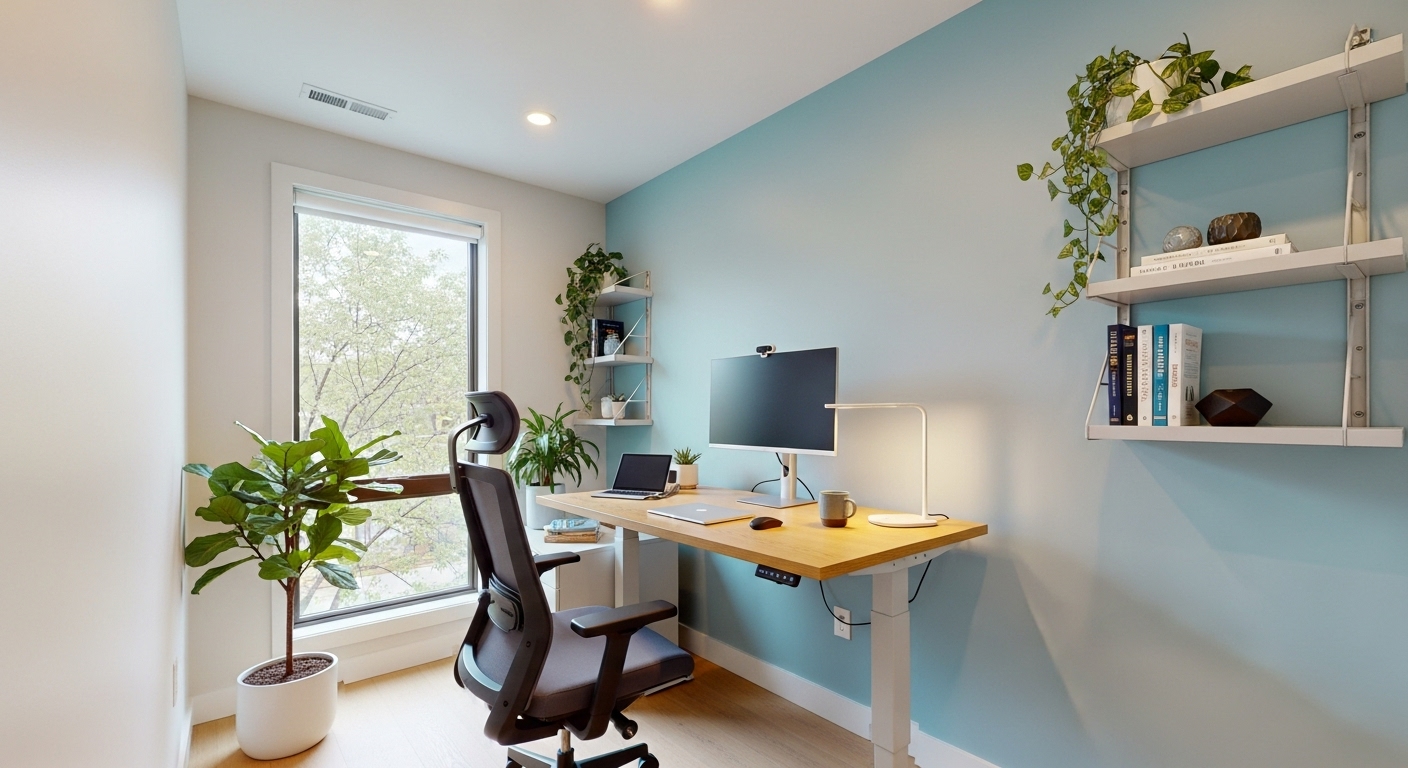The global shift towards remote work has redefined the professional landscape, turning the world into a potential office. For the modern professional, this isn’t just about logging in from home; it’s about choosing a lifestyle and a city that aligns with a desire for balance, culture, and career growth. In this new paradigm, few cities have emerged as compellingly as Amsterdam. Renowned for its progressive work culture and exceptional quality of life, the Dutch capital offers a unique blueprint for a fulfilling remote work life. The city’s deeply ingrained emphasis on efficiency over long hours creates an environment where productivity and personal well-being aren’t competing priorities but two sides of the same coin. This guide explores the intricate details of this work-life harmony, delving into the cultural nuances, practical frameworks, and digital infrastructure that make Amsterdam a premier destination for professionals seeking to build a sustainable and enriching remote career. We will navigate everything from the hybrid work models that dominate the city’s corporate scene to the vibrant community that supports a thriving digital nomad ecosystem.
The Dutch philosophy: understanding ‘niksen’ and work-life integration
At the heart of Amsterdam’s appeal for remote professionals is a cultural philosophy that champions balance. The Dutch concept of ‘niksen’—the art of intentionally doing nothing—is not about laziness but about recharging to improve overall productivity and mental clarity. This mindset permeates the professional environment, fostering a culture where downtime is respected and seen as essential for high performance. Unlike the hustle culture prevalent in many other global hubs, the Dutch approach prioritizes working smarter, not longer. The standard 9-to-5 workday is generally respected, and it is uncommon for colleagues to expect responses after hours. This cultural framework is a significant draw for remote workers tired of the ‘always-on’ mentality. Data supports this, showing the Netherlands consistently ranks among the top countries for the best work-life balance. For a modern professional in Amsterdam, this translates into a structured yet flexible day, with ample time to explore personal interests, socialize, and enjoy the city’s vibrant atmosphere without the guilt or pressure of pending work tasks. This deep-seated respect for personal time creates a healthier, more sustainable career trajectory, reducing burnout and fostering long-term engagement and creativity in one’s professional life.
Hybrid is the new norm: navigating the Amsterdam model
While the dream of working 100% remotely is popular, the reality in the Dutch capital is more nuanced and, for many, more practical. The dominant approach is a hybrid model. Recent statistics show that while the Netherlands leads the European Union in remote work adoption, employees average about two days per week working from home. This blend of in-office collaboration and remote flexibility offers the best of both worlds. It allows for the focused, deep work that a home environment can provide, while still fostering the team cohesion, spontaneous innovation, and social connection that come from in-person interaction. Companies across the city have embraced this model, recognizing that it boosts employee satisfaction and retention. This structure is particularly beneficial for modern professionals who are new to the city, as it provides a natural way to build a professional network and integrate into the local community. The office days become valuable touchpoints for mentorship, team-building, and complex problem-solving, while remote days offer the autonomy and flexibility that are hallmarks of a modern career. This balanced approach ensures that remote work doesn’t lead to professional isolation but instead becomes an integrated part of a dynamic and connected work life.
The digital nomad’s toolkit: coworking spaces and connectivity
Amsterdam is exceptionally well-equipped to handle the demands of a remote workforce. The city boasts some of the fastest and most reliable internet infrastructure in Europe, a fundamental requirement for any digital professional. Beyond the home office, there is a sprawling ecosystem of coworking spaces tailored to every type of worker, from freelancers needing a hot desk to startups requiring a private office. Spaces like WeWork, Spaces, and a multitude of independent local hubs offer more than just a desk; they are curated communities. They host networking events, workshops, and social gatherings, providing invaluable opportunities for professional development and connection. These spaces are strategically located throughout the city’s diverse neighborhoods, allowing remote workers to choose an environment that matches their vibe, whether it’s the creative energy of De Pijp or the polished business atmosphere of Zuidas. For professionals in Amsterdam, these hubs act as a crucial third space, bridging the gap between the isolation of a home office and the structure of a traditional corporate environment. They provide the necessary infrastructure for peak productivity while simultaneously offering the social and networking benefits that are vital for career advancement and personal well-being in a new city.
Building your community: networking and social life
One of the biggest challenges of a remote career can be the potential for social and professional isolation. However, the city’s compact size and international character make it uniquely suited for building connections. The Dutch are generally direct, open, and have a high level of English proficiency, which lowers the barrier to entry for expatriates. Numerous platforms and groups, such as Meetup and InterNations, host a wide array of events specifically for international professionals, ranging from industry-specific networking nights to casual social gatherings. The culture of ‘borrels’ (informal after-work drinks) is a cornerstone of professional life and provides a relaxed setting to connect with colleagues and peers. Furthermore, the city’s layout, which prioritizes cycling and walking, naturally encourages social encounters and a strong sense of local community within its neighborhoods. For a remote worker, building a strong support system is as important as setting up a functional workspace. Engaging with local hobby groups, sports clubs, or language classes can rapidly expand one’s social circle beyond the professional sphere, leading to a more integrated and fulfilling life in the Dutch capital and ensuring that the remote work journey is a shared, rather than solitary, experience.
The legal landscape: visas and regulations for remote professionals
Navigating the administrative side of working remotely abroad is a critical step. The Netherlands offers several pathways for foreign professionals. For EU/EEA citizens, the process is straightforward, as they have the right to live and work in the country without a specific visa. For non-EU nationals, the options are more structured. The highly-skilled migrant visa is a common route for those with an employment contract from a Dutch company. For freelancers and entrepreneurs, the Dutch-American Friendship Treaty (DAFT) provides a streamlined option for U.S. citizens, while others can apply for a self-employed person’s permit, which requires a robust business plan and proof that their work serves an essential Dutch interest. More recently, the Netherlands has been exploring a dedicated digital nomad visa, which, if implemented, would further simplify the process. It is crucial for any aspiring remote worker to thoroughly research these requirements and consult with an immigration specialist to ensure a smooth transition. Understanding the tax implications is also vital; the ‘30% ruling,’ a tax advantage for certain skilled migrants, can be a significant financial benefit but has specific eligibility criteria. Proactively managing these legal and financial aspects ensures that the remote work experience is built on a stable and compliant foundation.
Future forward: the evolving landscape of work in the Dutch capital
The future of work in Amsterdam is set to be a continued evolution of the hybrid, human-centric model it has already pioneered. While a proposed law to make remote work a legal right was narrowly defeated, the cultural shift it represented is undeniable; employers must still provide valid reasons for denying remote work requests, indicating a strong institutional bias towards flexibility. We can expect to see companies invest further in technologies that facilitate seamless collaboration between in-office and remote employees, ensuring a level playing field for all. There will likely be a greater emphasis on results-oriented performance metrics rather than hours logged, a natural progression of the Dutch focus on efficiency. The design of physical office spaces is also changing, moving away from traditional cubicle farms towards collaborative hubs designed for specific tasks and team-building activities that cannot be replicated online. As a global hub for tech and innovation, Amsterdam will continue to attract a diverse talent pool of modern professionals who demand this flexibility and balance. This influx of global talent will, in turn, push the city to further refine its infrastructure and policies, solidifying its reputation as one of the world’s most forward-thinking places to build a career and a life.
In conclusion, the ‘Remote Work Life’ in the Dutch capital is far more than a trend; it’s a deeply integrated system built on a cultural foundation of balance, efficiency, and respect for the individual. The city offers a compelling package for the modern professional: a thriving, innovative economy that doesn’t demand the sacrifice of personal well-being. The dominance of the hybrid model provides a perfect equilibrium between autonomy and community, allowing individuals to enjoy the flexibility of remote work without succumbing to professional isolation. Supported by world-class digital infrastructure, a vibrant network of coworking spaces, and an open, international community, the path to a successful remote career here is well-paved. While navigating the legal requirements demands careful planning, the rewards are immense. It is a chance to participate in a forward-thinking work culture where productivity is high, creativity is valued, and the art of living well is part of the daily routine. For professionals looking to architect a career that is not only successful but also sustainable and deeply fulfilling, Amsterdam presents a near-perfect blueprint for the future of work.





